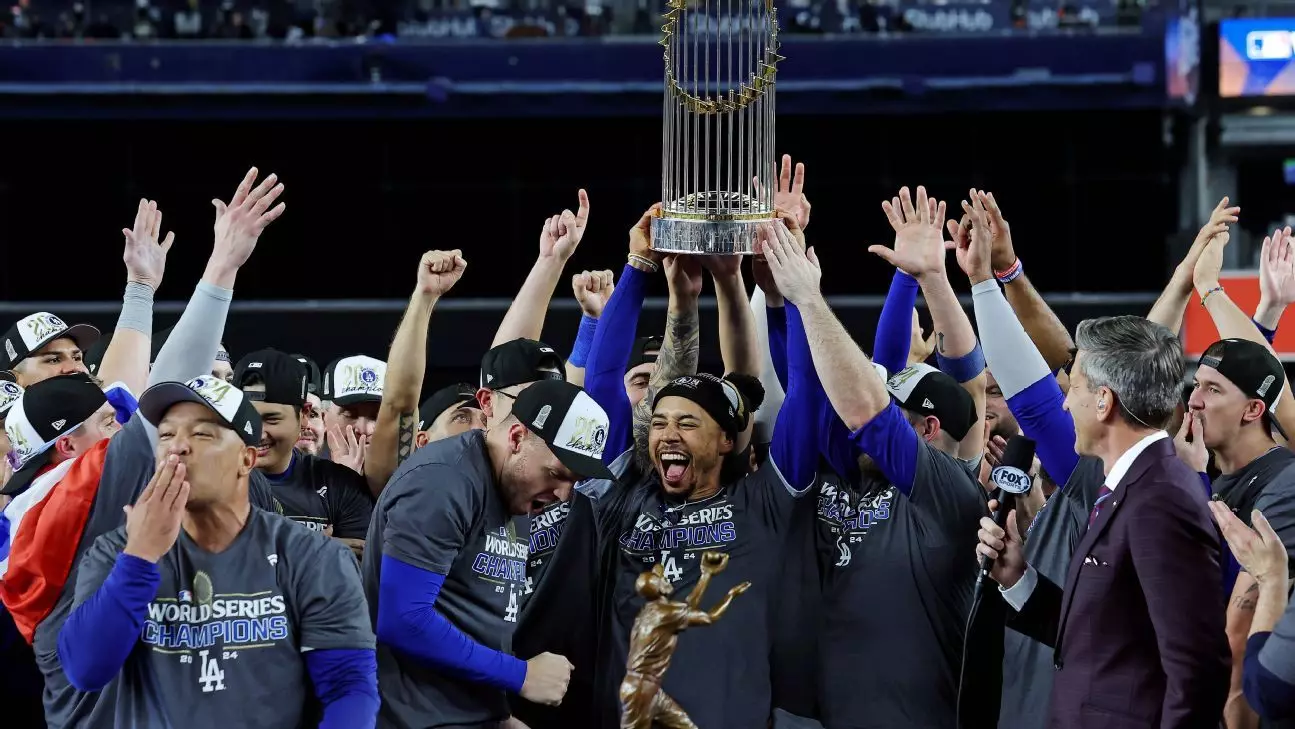The announcement from the Los Angeles Dodgers about accepting an invitation to the White House is more than just a nod to their World Series championship; it represents a profound reconnection with national pride. Scheduled for April 7, the team’s visit underscores the significance of celebration in sports and its role in the fabric of American culture. Set against the backdrop of a contentious political landscape, the Dodgers’ recognition offers a beacon of hope, unity, and progress in a country often engulfed in division.
By marking their triumph in the corridors of power, the Dodgers affirm the idea that sports are not just about competition, but also about community engagement, reflection, and leadership. Their visit coincides with the team’s commitment to social responsibility and a recognition of their unique place in American history, especially given the legacy of trailblazer Jackie Robinson. By visiting Capitol Hill a day later, the Dodgers add layers to their momentous celebration, reminding us that victories transcend the diamond and require acknowledgment on a grand stage.
Honoring Legacy Amidst Controversy
Jackie Robinson’s legacy is a remarkable emblem of resilience and courage. Unfortunately, it has often been overshadowed by modern political controversies that seek to downplay significant narratives of diversity, equity, and inclusion. The recent incident involving the temporary removal of a story chronicling Robinson’s military service highlights the delicate relationship between sports and politics. It amplifies the urgency of protecting historical narratives, especially those that embody the spirit of progress and social justice.
Roberts’ response to the deletion signals an awakening to the responsibility athletes and sports organizations have in advocating for inclusive representation. As he expressed joy over the restoration of Robinson’s story, it becomes evident that the celebration of historical figures goes hand in hand with the promotion of contemporary ideals. The Dodgers’ acknowledgment of Robinson’s contributions reinforces their role not just as athletes but as catalysts for social change—a necessary stance, particularly in today’s climate where misinformation threatens to erase vital histories.
Personal Evolution of Leadership
Roberts’ evolution as a leader is particularly striking in the context of this upcoming trip to the White House. His past reluctance to engage with the administration signifies the ongoing tug-of-war within sports leadership regarding political engagement. The manager’s decision to embrace the invitation, however, indicates a shift toward a more nuanced understanding of civic participation. Rather than rejecting the opportunity, he now views it as a necessary acknowledgment of his team’s hard work.
This complex relationship with political power illustrates a broader theme in sports: the notion that leaders must adapt and evolve in their roles. Roberts’ journey from a hesitant participant to an eager attendee mirrors the broader societal movements toward inclusivity and representation. His comments on diversity initiatives reveal a commitment to advancing the game of baseball and ensuring it reflects the society around it. This developing narrative positions Roberts and the Dodgers as progressive representations of how sports can influence broader societal changes.
The Bigger Picture: Sports as a Platform for Change
The Dodgers’ visit to the White House is emblematic of a larger movement within sports to address pressing social issues. While the celebration of winning is crucial, it is equally vital for teams to leverage their platforms to foster discussions around diversity and inclusion. The intersection of sports and social justice has never been more relevant, with athletes increasingly using their voices to advocate for change.
This trip comes at a crucial time when various institutions grapple with their history and future roles in society. For the Dodgers, this serves as an opportunity to reflect not only on their victory but also on their legacy of championing inclusiveness and respect for every citizen’s story. By standing in solidarity with figures like Robinson, the Dodgers exemplify the evolving relationship between sports and cultural conversations—a dynamic that holds immense potential for impact far beyond the playing field.
Thus, this celebration becomes not merely a commemorative event but rather a statement of intent, aligning the Dodgers’ trajectory with a hopeful and inclusive future for baseball and society as a whole.

